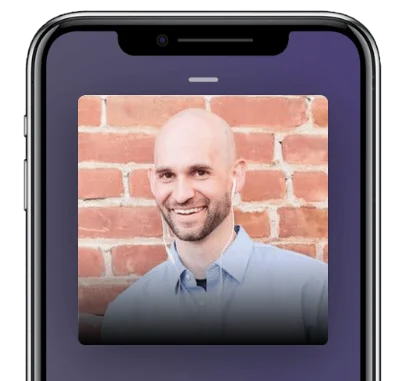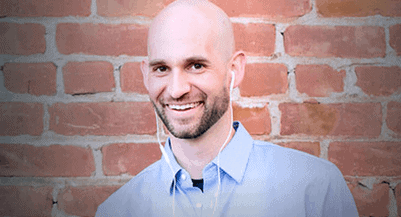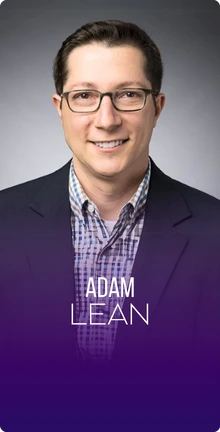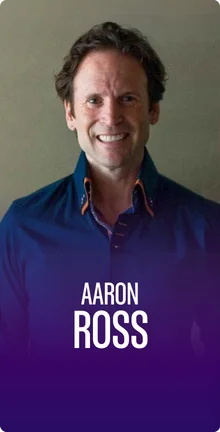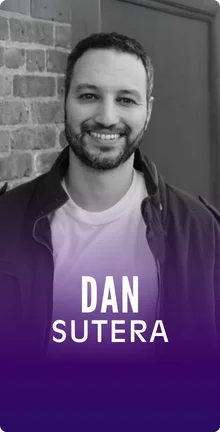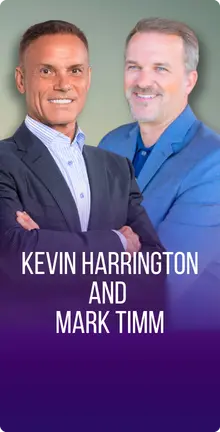In this Episode
- [02:05]How can somebody with a full-time job augment their income with a side hustle without losing their job? In his answer, he discusses several tiers, starting with services like Uber and Lyft.
- [05:44]Nick discusses getting into value-based pricing.
- [06:49]The third tier is the e-commerce revolution, Nick reveals, and digs into the specifics.
- [10:10]Nick and Stephan talk more about the downsides and risks of working with Fulfillment by Amazon.
- [12:21]The fourth tier is the authority business model, which involves establishing yourself as an authority in a specific subject.
- [15:43]Stephan does some of this fourth-tier work, he reveals. He then talks about his publisher and what the pitch process was like.
- [18:40]Stephan thinks it’s business karma that when you share massive value, you’ll receive massive value in exchange. He gives a specific example to illustrate what he means.
- [21:21]How do you incorporate these four tiers into your life so that you’re not in danger of losing your job and still have time for yourself and your family?
- [25:02]We hear about the Three Lists of Freedom by Chris Ducker, as well as the value of finding a virtual assistant.
- [28:17]Stephan talks about onboarding for virtual assistant positions, and describes his process, which involves his virtual assistant completing many tasks.
- [35:22]We hear a story about Stephan’s process of finding his VA.
- [37:33]Nick talks about what he does once he has a VA and is ready to take their tasks to the next level. Stephan then offers some advice based on what he did at the beginning of his career, including an entertaining story about taking risks.
- [42:34]All of this goes back to being so good that you can’t be ignored, Nick points out.
- [44:36]What are some standard operating procedures that have really made a difference in Nick’s business?
- [46:21]Stephan raves about the value of checklists for the people who are working for you.
- [48:07]Nick takes the opportunity to discuss any other kinds of processes or systems beyond just checklists that he uses.
- [50:26]Is Nick nervous about his work on Facebook, in the sense that Facebook owns his community in a sense?
- [51:44]Nick discusses the next steps for listeners who want to work with him or learn more about what he’s been saying.
- [52:41]We hear about where the bulk of Nick’s own income comes from.
- [53:39]Nick shares some final words of wisdom for listeners regarding the difference between people who have success at a side hustle and people who stay on the sidelines.
Nick, it’s great to have you on the show.
Stephan, thank you for having me.
You are the king of the side hustle. You’ve got The Side Hustle Show which is a fantastic podcast, you have a community of people at Side Hustle Nation and you’re teaching people how to build extra income streams. Let’s talk about somebody who’s at a 9 to 5 job and we’ll talk about business owners, entrepreneurs in just a minute. Somebody who’s working for the man, how would they augment their income with a side hustle without losing the job?
That’s the big, important part, you don’t wanna lose your job, at least not right away. I think it’s a lower risk brand of entrepreneurship, it starts something on the side, it starts something small, low risk and then try and scale that up, try and grow that up. If you want, we can go walk through three or four different frameworks that might be helpful for people that think about what side hustle might be right for them. At the bottom rung of this ladder is the sharing economy or the peer-to-peer economy. These are your Uber drivers of the world, your Lyft drivers of the world, your Airbnb hosts, your DogVacay hosts, I think they got bought by rover.com, it’s like Airbnb but for dogs. What’s cool about all of these platforms is they’re very low barrier to entry and you can start it right away usually with assets that you have, your car, your house, your time. They have this built-in marketplace where you can put your buy button-up for somebody to do business with you relatively quickly and relatively cheaply. The downside to that is, in the example of driving for Uber, you can see where this is going. They’ve continually cut rates, they’re having their fleet of self-driving cars, I don’t expect it to be around in four or five years but it is something that works today. If you have spare time, it’s something that you can get done.
A driver of mine in Chicago said, “When I wanna make money, I turn on the app. It’s that simple.” One of the cooler opportunities, I think, in the sharing economy specifically with Uber and Lyft is they allow you a couple of directional drives per day even if you’re like, “I’m not gonna go out and take drunk people home from the bar, that’s not my thing.” You can turn the thing on before you leave to work in the morning and say, “I’m going in this direction for my commute.” See if you can pick somebody up who’s going the same way as you, at least a little bit of the way to offset your commuting costs. I met a couple of people doing that in Seattle. I think Uber allows you two a day, and I think Lyft allows you up to six directional drives per day. Pretty fun way to get started over that. The downside is you know if anybody can do it, everybody is gonna do it and naturally put some downward pressure on prices. Tier two is a way to combat that by selling your own unique skills and expertise through freelancing or consulting. There are market places where you can go to town. Similar to the sharing economy stuff, I got my freelance start on a site called Fiverr. There is a giant platform called Upwork. What’s cool about these is people are on there searching for help because they don’t know anybody. That’s a powerful place to be in to become their go-to person. It’s not likely that it’s a one-off need, they probably need some help on an ongoing basis. That’s a cool opportunity to introduce yourself through these platforms. Have you ever done any consulting work? I don’t know what’s your background.

I do plenty of consulting work, it’s a little pricier than what you’d find on Fiverr though. I do SEO consulting for a living. I use Upwork and I’ve used Fiverr as a consumer of services, I use Upwork all the time, I used freelancer.com, a bunch of those services are awesome.
Any other effective ways you found to find clients on the consulting front?
Speaking engagements, I speak a lot, and I write articles for sites like Search Engine Land. I get referrals from existing clients, some past clients.
What’s cool about this business model is you can start to get into value-based pricing. I don’t care, Stephan, how long it takes you to optimize my site, I just wanna see my rankings improve. Do what you have to do, I’m gonna pay you for that result rather than how long it takes you to drive me from point A to point B. There’s much higher upside potential. On top of that, you can start to get in the business model of selling templates and courses and productizing your expertise in a unique way. I really like that way as a way to get started on the side. It’s a natural next step for a lot of people in the traditional [9:00] to [5:00]. Use this mindset shift of saying, “I don’t necessarily have to have this monogamous relationship with my employer, maybe I’m already an entrepreneur.” You flip that switch in your head, my day job, my current boss, maybe they’re just my largest client right now. That freeze up your other 16 hours a day to go and find more work. I like that one a lot.
Only 5% or 10% of all commerce takes place online.
Tier three, or the next stage that a lot of people are getting into really hot side hustle right now is the eCommerce revolution. I don’t know what the latest stat is but it’s still something like only 5% or 10% of all commerce takes place online. It’s a huge economy already and it’s only gonna get bigger. The biggest player is Amazon. What I didn’t realize up until a couple of years ago is that Amazon is like a giant consignment store, half of their inventory isn’t owned by Amazon, it’s owned by third-party sellers like you and me. They said, “We built this world-class logistics network, why don’t we open up the gates to all these other products, all these other sellers?” They’ve done that and they say, “We’re happy to take a fee on everything that sells.” They’re making their money but it’s giving everybody else access to Amazon’s database, Amazon’s marketplace of customers. That’s the top five websites in the country that gets a huge, huge volume of people searching and a huge, huge volume of people buying. It’s a search engine for buyers, I think that’s a really powerful one to get started with as well.
That’s called FBA, Fulfillment by Amazon.
FBA is the way to do that. You can get started just with your smartphone and the Amazon seller app which is free. You set up a free Amazon seller account because while you’re out running your regular errands, stop by cleared section of the store and see, you scanned the barcode and say, “What does this item go for online?” It’s a little bit of a needle in the haystack thing where you might scan several items or several dozen items before finding something that’s a hit. Once you do, it’s almost an arbitrage play because you know this is turning over because they give you the sales rank data. My general rule is anything less than 100,000. If item number one is the best-selling item in that category, you know that’s gonna turn immediately as soon as it hits the warehouse. Item number 100,000. In most categories, it’s gonna turn relatively quickly. If I can double my money, let’s buy this stuff up, let’s ship it in and they’ll send it out to the customer on my behalf. I like that one. The next people are going crazy with importing stuff from China and they’re trying to find hot products and making tweaks to them and building legit brands but using Amazon as the launching pad. Some exciting stuff. Any other FBA sellers on your show?
I probably do, I just don’t know who they are. I myself have looked into doing that, I’ve just been too busy with my clients to really go far down the track. I’ve attended some training on it, I forgot the name of it. It wasn’t the Amazing.com training, I can’t remember off the top of my head. It was an online training plus the live event. I got some training and I also got a bit of mentorship from somebody who’s done really well with FBA. They’re also secretive about what products they’re selling, they won’t tell you, “This particular wellness product is my main thing.” You’ll never find out even if they’re your best friend.
I guess to play it close to the best because it’s so easy for the next guy to get in the game. The downside is if you find a product that hits, it’s almost like you can’t keep it in stock. The first year, your cash flow is getting pumped back into more and more stock. There’s some risk involved in that because you got a lot of capital tied up sitting in Amazon’s warehouse. They could change the rules at anytime, there’s some inventory risk in that business. There’s a higher upfront cost to get started than putting your spare bedroom up on Airbnb or sticking your flag in the sand and saying, “I’m a consultant now.” A little bit more risk but potentially some pretty outsized rewards on that front.
I would say one big risk the people don’t think about in that realm is that Amazon is like the female black widow spider. The male black widow spider serves a purpose until he no longer is needed to serve that purpose and then he gets eaten. Amazon looks at who the top FBAs are with all the different products and then they end up bringing that inhouse and creating their own products for that stuff. Amazon Basic’s brand and all that sort of stuff. You gotta be really careful, I don’t know what you can do about it if anything but just be aware that Amazon could just whoop in and decide, “We’re selling this direct.”
All of a sudden you’re competing with the beast, competing with the marketplace itself.
All of a sudden you’re competing with the beast, competing with the marketplace itself.
Good luck with that.
If you’re building your business on somebody else’s platform, there is always a chance that the rules change. I learned that the hard way with Google, algorithm updates and Google AdWords and all sort of things. You’re kind of at the mercy, get while the getting is good, but then things can happen. It’s like while you’re building your email list, you’re building your customer database offline in a platform you control instead of you being 100% reliant on these third party systems.
You have a Shopify storefront on your own website that also sells the products that you’re selling on Amazon.
Those were the first three most popular side hustles that I see people getting into, the fourth one is one that’s also really exciting. I call this the authority business model where you’re establishing yourself usually through content either blog, podcast, video, that, “I know what I’m talking about in this specific subject matter. You pay me for my in-depth expertise, you could pay me for a course, you could pay me for coaching, you could pay me by my books.” All these things are really cool ways to monetize your unique expertise, put your unique stand in front of the world. A guy I talked to recently was an Engineer in Louisiana, that was his job. Now his full-time gig is teaching piano lessons online, he runs a site called pianoin21days.com where he teaches people how to play modern pop songs on the piano in three weeks. It’s a really well-defined value proposition. When we spoke, he sold $20,000 of this course in the last month. I was like, “Holy cow, that’s crazy.” The other one that comes to mind actually is a really inspiring story, is a woman in Washington who makes $45,000 a month when we spoke, selling courses on how to bake the perfect sourdough bread. I was just amazed by that. She’s one of the largest privately held baking Facebook groups, 35,000 people in this Facebook group that just love her. They’re part of her tribe and they are sourdough aficionados.
Is she part of some affiliate networks so that she has access to a lot of affiliates looking for offers to sell on their sites?
She runs everything right now through udemy.com, another one of these peer-to-peer marketplaces, it’s a peer-to-peer education marketplace. She showed me this funny story, she was trying to improve her YouTube channel and ended up buying some Udemy courses on how to do YouTube marketing. Halfway through the first one, the lightbulb goes off and she’s like, “These people are selling courses on this platform, maybe I should make a course.” She’s in a rough living situation, she said. Her first courses, they filmed in this dingy garage. She said, “It was a lot of close-ups of my hands working the dough because I didn’t wanna zoom out and have people see the oil stain floor or the nasty wall behind me.” She was just getting started with what she had when she had it, I was really inspired by her.
When I mentioned affiliate networks, Clickbank comes to mind. If she had an ebook plus some videos and she wants to sell it on Clickbank and all these Clickbank resellers or affiliates would get a percentage. They’re looking for offers with high velocity that do really well and make a lot of profit for the affiliates, you can sort by that.
If she could target other baking blogs, maybe they don’t talk specifically about sourdough but maybe their audience is interested in it. That’s a perfect affiliate for her.
I actually do some of this, the fourth tier thing of authority business model. I have online courses, I do one on one coaching. I’m working on starting a group coaching program as well, I’ve got books. Of course, you don’t make much money on a book if you have a traditional publisher because they take the lion’s share.
Did you go the traditional publisher route?
I sure did three times. O’Reilly is my publisher, a big fan of O’Reilly. I’ve loved them since the 90s, since I started teaching myself preprogramming and all sorts of geeky stuff. I would’ve never imagined that back then I would end up in 2009 getting to be an O’Reilly author. Now I got three books with them.
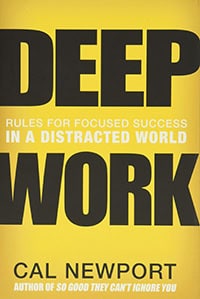
What was the pitch process like? Most curious, how book deals come about.
It was serendipity really. I was at a conference, I just finished with a previous conference two weeks earlier where I just crushed it. I did a really, really good job and I gave amazing value. One of the top people in my industry, in the SEO industry, Rand Fishkin, came up to me when I was in the speaker lounge of this next conference a couple of weeks, there was this SEOs Toronto and we just finished a couple of weeks prior with SMX Advanced. He comes up to me, I’ve never spoken with him before, he gives me a big hug. He tells me like, “Dude, you really brought it. You were amazing at SMX Advanced. That was incredible.” We started chatting and then by the end of the conversation, we decided that we’re gonna do a book together.
Was he Search Engine Watch or something way back in the day?
Yeah, way back in the day. And then Search Engine Land, once he left and sold Search Engine Watch and Search Engine Strategies, the SES Conference, then SMX, Search Marketing Expo, and Search Engine Land were his brands. Now he’s divested himself of those brands and now he’s working at Google. I was just with him the last couple of weeks.
Going back to the mothership, I guess.
We contacted Danny after we decided that we’re gonna do a book together. He happened to be at Foo Camp which is the friends of O’Reilly conference. He’s like, “Let me talk to a couple here who are friends of mine and see if they’d be interested in publishing you.” Within two or three days of Rand and I speaking, we had a book deal.
I don’t know if it always works out that way but that’s really cool.
I don’t think it does work out that way all the time, not even close. I think it’s business karma when you are out there sharing massive value and not worrying about giving too much away to your competition. Because when I was at SMX Advanced speaking on this give it up panel, that session was my idea and these were supposed to be your very best secrets. I had to bring it because it was my idea for that session and I brought it. My tips were killer, I had people raising their hands if they knew these things, these were the things that I developed, secrets, hacks, and things together, higher Google rankings and do analysis and stuff. Hardly anybody raised their hands. The room was filled with my competition so I knew I was delivering massive value to everybody.
It’s like other agencies were there.
They’re totally gonna steal my stuff and call it their own. I had an approach for how to get the true position of an indented listing. Let’s say you got a position, one and two is taken by a competitor and you’re position three and you wanna see that position two is not actually position two, it’s position ten. This was back when Google did what they called host crowding, grouping search results together from the same site. I showed how you can find out what the true position was. That was one of seven secrets that I shared in that session. Their jaws dropped and they’re amazed and everything. I know that people were ripping that off all over the place after the session was over with saying you wanna see the true position of an indented search result, let me show you, without a credit to me, that’s fine. I just wanted to add a lot of value. Like I said, karma, it just comes back to you. Two weeks later I got a big hug from this industry giant, Rand Fishkin, founder of SEOmoz, now called moz.com. The rest is history.
Those are the best sessions to sit in as a conference attendee where it’s like, “I’ve been doing this for ten years, I’m legit, I’ve never heard of that before.” You’re just taking notes, like [00:21:46], he’s always a great speaker in the SEO world. Learn something new every time he talks.
He’s great. We got the four tiers of the Side Hustle. How do you incorporate these tiers into your life, your career, your business so that you’re not losing focus, you’re not endangered of losing your job if you’re working for the man but you still get enough sleep at night and you still have time to play with your kids or have fun with your significant other.
Take an honest assessment of the time you have.
The first place to start is maybe taking an honest assessment of the time that you have. Nobody has enough time, that’s gonna be a universal problem. I can tell you, it doesn’t get any better once you make the leap and you become a full-time entrepreneur, you’re still not gonna have enough time. It comes in two groups with that, one, exercise, that I like to do and probably do to go through another round of this is an almost minute by minute time-tracking exercise, at least of the work hours. If you’re looking for side hustle time, you’re gonna have to do this almost 24 hours in a day. What you do, I just used Excel for this, a friend of mine recommended the tool called aTimeLogger. There’s another one called toggl.com, it’s a glorified stopwatch. This is what I’m doing, start time, stop time. A couple of things, the first is I think you’ll find you’re more productive in the moment now because the clock is ticking, it gamifies it. You’re like, “I can’t believe I spent that much time on that project through that email.” That’s the first benefit. The second benefit is, at the end of your week or two weeks of doing this, you have a really itemized list of where your 24 hours in the day are going. You might find, “That is unnecessary, I can’t believe I spent that much time on that, there’s gotta be a more efficient way, then I should be able to delegate, this is completely a waste of time.
You’re just gonna find these different opportunities, you can find opportunities for delegation, you can find opportunities for automation or straight up elimination like, “Why did I do that?” You can find some side hustle time in the margins and then you go through your list of business opportunities, business ideas and say, “Which one of these sounds most exciting and which one of these sounds most doable in the near term?” I like to say that choosing what’s next doesn’t mean choosing what’s forever. What I mean by that is even if you don’t aspire to flip products from Walmart or drive for a Lyft long term, I think you’ll find that it’s really empowering to earn those first job free dollars. It’s almost like a switch goes off in your head and be like, “I am worth more than what it says on my paycheck, I have value outside of my day job.” I’ll give the example, my wife, she and her friends started a photography business four years ago, four and a half years ago. She’s an engineer by day and still is but all of a sudden, the ability to earn money outside of that job, her confidence, not that she was unconfident before but I know there’s a change in her mentality, her outlook on life, her outlook on money, that’s really cool to watch. No matter how small you start, it’s a powerful thing.
Tim Ferriss would recommend hiring a VA, virtual assistant, to do a lot of the grunt work and things that you don’t enjoy doing or aren’t that good at or they’re just busy work for you. It’s affordable if you can hire somebody for less than 50% of your effective hourly rate. You gotta figure out what your effective hourly rate it is. It’s a bargain if you can delegate whatever you’re doing for 50% or less than 50%. I actually interviewed Tim Ferriss and we talked about this on the episode. A definitely great episode to listen to, listeners. Another thought that comes to me is Chris Ducker has this thing called The Three Lists of Freedom where you delineate out all the tasks that you’re doing that you don’t like doing or that you can’t do or at least not very well and the things that you shouldn’t be doing. Have you ever done that exercise?
I always forget what the column headers are on Chris’s three lists.
Those are exactly what you shouldn’t be doing, what you can’t do and what you don’t like doing.
It can be helpful to figure out where your opportunities to get some stuff off your plate are, you might be surprised. I’m a recovering control freak where I wanna do everything myself, I’m a solo operator and slowly trying to let go of different pieces. I hide it, every excuse in the book, they’re not gonna do it as well as me, they’re gonna steal my ideas, they’re gonna screw something because they had access to the AdWords account and everything like, “You’re gonna screw something, you’re gonna cost me a lot of money.” All of these different fears that ultimately ended up being unfounded. You’re gonna invest a little bit of time in training which was an excuse as well, I don’t have time to train anybody, I’m too busy. You have to take a step back to hopefully go two steps forward and really free up those hours.
It can be helpful to figure out where your opportunities to get some stuff off your plate are, you might be surprised. Share on XFirst, you gotta release the control freak thing and then after you’ve done that, you can figure out what you don’t wanna be doing anymore based on your three lists of freedom and then you can get a virtual assistant who earns your trust overtime, you don’t give them your credit cards and your email password and everything straight away. They gotta earn that trust but you delegate and delegate and delegate more. I don’t even manage my own inbox, my email inbox is kept to inbox zero for the most part by my virtual assistant. I go into my action folder, I go into my read review folder, that’s pretty much it. I try and stay out of the inbox because within minutes or maybe an hour, that’s gonna be in the right place, it’s either the archives or somewhere where I need to see it. I gotta give her the keys to my kingdom, she has access to all my email, all the archives of my past emails, not just business emails but personal emails too. I’m okay with that because I trust her implicitly. She earned that trust over time.
Was it somebody you found through Chris’s Virtual Staff Finder service?
No. I have another person who’s amazing out of the Philippines that I got through Virtual Staff Finder. This person I found, through Craigslist.
I’m curious because I’m at the point where I’m looking at this Email Monster, it’s just a game of whack a mole. You can’t win. It’s like, “Maybe it’s time to get some outside help.” I’m curious what the onboarding process for that was like. They seem really subjective to try and come up with even 20 or 30 canned responses. How do you deal with all that?
First of all, I recommend you listen to my episode with Carolyn Ketchum who actually was one of my rockstar VAs, she’s moved on to bigger things, she actually got her own VA now and has a best-selling cookbook in the bookstores and she’s got a very popular social media presence and blog. She’s doing really well. She credits some of her success to working for me which is pretty cool. I interviewed her and we talked about some of the systems for onboarding, for screening, for interviewing candidates for the VA position and training them and everything. It was, I think, a really amazing episode. Check that one out. The short answer to your question, what’s my onboarding process, how do I find really good people and then onboard them.
Let’s say I’m posting to Craigslist but I’ll use Virtual Staff Finder, I’ll use onlinejobs.ph, I use different resources to find them. I have hoops they have to jump through in order to apply for the job. If they screwed up, then they don’t even get to talk to us. I’m not the one who’s managing this process, my head VA is doing all the screening. We’ve figured out through systems what the criteria are gonna be and what the screening process is gonna be like. Let’s say that one of the hoops they have to jump through is they have to solve a riddle. In order to apply for the job, you have to solve this riddle, a problem-solving riddle. It’s not easily Googleable but they could probably still find it online if they are good at searching.
In which case shows that they’re at least resourceful?
It doesn’t matter. If they just followed the directions and answered the riddle, I’m good. If they took the riddle from somebody else’s website, it’s fine, they’re good at searching, that’s good, they know how to do shortcuts. I didn’t specifically disallow it, it’s not like they’re cheating.
It’s an open book test, this is episode 17 with Carolyn Ketchum. I’m downloading it now, by the way.
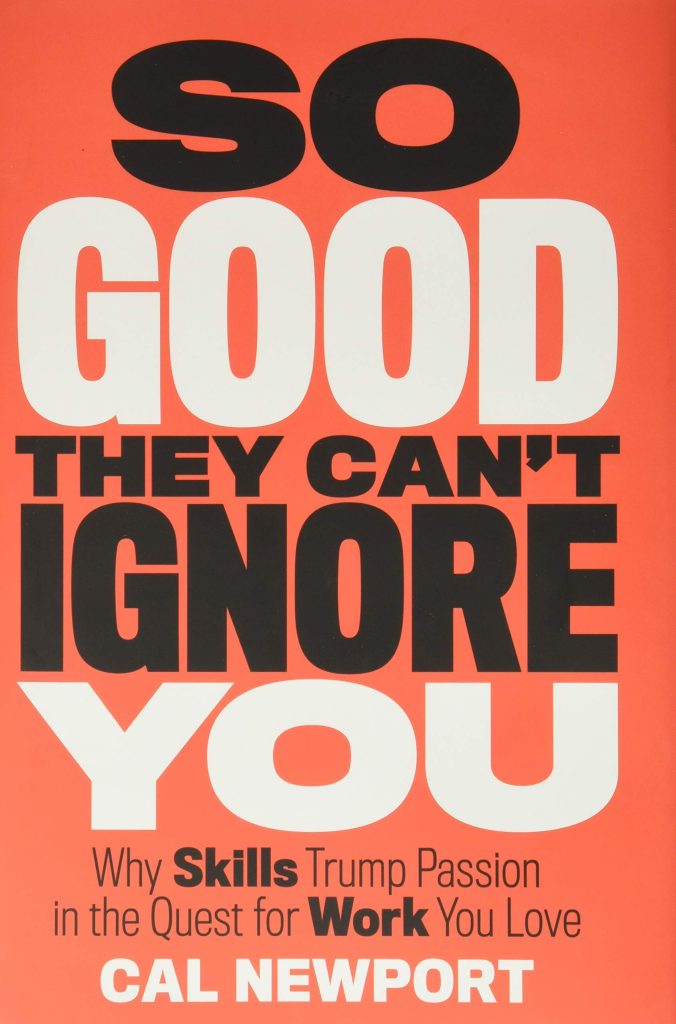
That’s one thing. Another thing you can do is you can say, “Instead of submitting your CV, resume through email, I want you to leave me a voicemail.” So many people will not even follow that simple direction. They’re out.
To speak their resume to you?
No. Just leave me a voicemail with these three things… Let’s say that one of those things is I want you to leave a voicemail for me with why you’re applying for the position, also what you bring to the table, why I should consider you over everybody else, and number three is out of these five things, which would you say is most important for this job? That’s another test that I incorporated into the process. I might not do it in the screening stage and I might save it for the interview. Usually, I actually save this one for the interview but let’s say that the question is framed like this, “Out of all these different attributes, which would you say is the most important for this job? Would do say attention to detail, creativity, honesty, dedication.” Maybe I throw in one other. Which one would you guess is the right answer?
For managing email?
For anything. It could be for being my VA and managing my email and doing my travel bookings and all that, being an SEO consultant, helping me service my clients, it could be an assistant administrator that helps maintain my websites, any of those rules, these still applies.
I’m gonna go with attention to detail.
That’s the wrong answer, you’re out.
I’m not gonna get hired.
No, you’re not. It’s honesty. This is called the honesty test. If somebody believes that honesty is not as important as creativity, attention to detail or whatever, they’re trying to answer it in a way that they think would get them the job. First of all, that’s not even honest. If honesty isn’t one of their highest values, they’re not a good fit, you can’t trust them. Certainly, not in a VA role where I’m eventually gonna give them access to my email, potentially credit cards. Some staff even have my bank account password.
You got me.
These different hoops that they have to jump through are very easy to screen for, thus they can be delegated to your Uber assistant, your main VA to do all that stuff. I come in for the second interview, not the first interview because my VA can do the first interview knowing a lot of these questions asked.
This is your same email helper person who’s doing these initial screening interviews?
Yeah. She has really become much more integral to my business than just a VA.
Is she full-time?
She’s not but she doesn’t have five or six other clients either. She’s got her nonprofit that she runs, that she founded and runs and then she’s got the stuff she’s doing for me. I don’t wanna have somebody who’s split across six or seven different clients because I don’t get much of their mindshare.
I like how this turned into me interviewing you.
It’s so helpful to have somebody that you can delegate to, a VA, somebody in the Philippines, your US dollar or euro or whatever goes a long way. You can have somebody amazing for $3, $4 an hour. You’re working for the man and you’re earning not a very good salary, you still have the ability to have somebody in the Philippines doing the stuff that you hate, freeing up your time, the personal stuff, maybe it’s budgeting, maybe it’s doing some of the mindless grunt work for your employer, you can do that, work remotely, you’re still getting it done, now you have more time to work on your side hustle. It’s really, really freeing and amazing.
For me it’s podcast editing, although that service is here in the States and the show summary and the show notes writer, he’s in the UK. I do have an assistant in the Philippines, she’s actually through a service call, okayrelax.com which I think is the best name for a VA company, okay, I got this, relax. She helps out with some formatting like blog formatting and some research stuff.
If they don’t work out for you or not a fit, then you can go back and get three more.
A funny story about my VA that I found through Virtual Staff Finder, which is a great service, Chris Ducker’s company. $500 and they’ll bring you three really qualified candidates for you to interview and give them the job requisition or job description and they go out and find really qualified people and then you interview them. If they don’t work out for you or not a fit, then you can go back and get three more. That’s how I found an amazing assistant. She started working part-time, 20 hours a week. She was working full time at an agency in the Philippines. I’m like, “What would it take for me to replace your full-time job?” Because she’s working 60 hours a week, it’s crazy. I would never wanna work 60 hours a week but she wanted to, she was enjoying doing that. I was her 20-hour side hustle and then she had her full-time 40-hour a week job. She loved what she was doing for me and my company. I just bettered the rate that she was earning at the full-time role. Now she’s working 60 hours a week for me.
She still wants to work the 60 hours, that’s awesome.
She’s amazing, she’s become a linchpin to the business. Let’s say that you’ve done your time tracking, you figured out that there’s a whole bunch of stuff that you don’t wanna do and you’ve gone through this VA selection process, you’ve got somebody that you’re trialing, always hire people on trial period because they may or may not work out. It’s like the first three weeks, or here are three projects for you to work on, three tasks, show me what you can do before you jump in the bed with them, before you hire them on a long term basis. Now, what? You got that VA, how do you delegate stuff to them? How do you take this to the next level?
My best hires have been the ones where I have a really clear process outline, process documentations, standard operating procedures. Those are usually written out in Google Docs or a screen capture over the shoulder demo video like me doing the specific task that’s why I was curious about the email because it seems like every email is different but then if you look back, every email is not different. Every email maybe falls into one of a dozen or two dozen different categories. If you can build the systems around that, then it’s trainable and you could delegate it. That’s probably the next step for me. When it comes to your Side Hustle, some of the stuff is tough to delegate. You’re not gonna delegate your Uber driving, it’d be harder to delegate your thrift shopping and stuff like that. Where you might find margin is if you have that consulting business and part of the job is looking for proposals or looking for places to guest post with your expertise or running reports for clients, something like that. There may be some opportunities inside of your day where there are these delegation opportunities or maybe it’s working on your website or writing your blog or something. That’s probably where I would go from that. I don’t wanna hire anybody unless you have revenue coming in, I have a hard time with that. Go out and find the customer, validate your business before spending a ton of money on a website or building out your team, don’t put the cart before the horse.
Don’t put the cart before the horse.
You can just be scrappy and clever and not spend money. For example, you need office space, find somebody that you can barter with to start where you can do work for them and they’ll give you office space in exchange. I did that very early on in my business when I was bootstrapping. I didn’t wanna sign a lease and pay that money before I had serious revenue coming in the door. I got a client to help them with their web development and in exchange, we got office space and then I started hiring staff. We ended up having more people in his office than he had, it was funny. That worked out for a couple of years, that was really good. Another thing that was really scrappy, I didn’t have any clients of any note yet, almost no revenue but I talked my way to a conference as a volunteer. It was an expensive conference, a $2000 conference. I got in for free as a volunteer and they gave me the job of mic runner. I was pretty young back then, I was 23, 24 years old. I don’t know if I would’ve done that these days, it’s crazy that I actually admit doing this. I chimed in helping the panel of experts up on stage answer some of the questions because I had the microphone. Here, I’m the mic runner, I’m running the mic around, people are asking questions from the audience. This was a bit really early days of the web in 1995. Really pretty big names were up on stage like G.M O’Connell, founder of Modem Media. I was upstaging them from down in the pit.
They’re like, “Who’s this intern?”
You could do this and that would be even better. I got so many business cards from people like, “You know more than the people up on the stage.” I ended up getting two big clients from that. All I had was a student loan then, I had no money in the bank or anything, I didn’t have any investors but I ended up getting two accounts that were each worth half a million dollars over time, million dollars worth of revenue from being really cheeky. I also got uninvited from volunteering on day two by the conference organizer, she was really pissed. Totally worth it. The irony of all irony is that the same conference organization, a different conference producer asked me to chair a conference six months later. I did a general session, I chaired the conference and I did a post-conference workshop, the same exact organization where I got kicked out for day two.
I think it goes back to being so good that they can’t ignore you.
Yes. I love that book, I love the author, Cal Newport. I actually had him on my show, a fantastic episode. We really went deep into the concept of deep work which is his more recent book. Out of all the things that you could do to add more value and be more impactful in your business or in your career and in your life, that’s it, just do deep work, I think. Have you read the book?
I haven’t read Deep Work, I read the other one, the So Good They Can’t Ignore You.
You should check it out. Listen to my episode.
We’re going on 17, Tim Ferriss’ episode and now the Cal Newport. I’m gonna fill up my phone here.
For example, having a separation of Church and State of I am going to do work in a different room or in a different chair when I’m in deep work mode or even in the different office. Just having that one thing can make a huge difference and then you won’t get sucked into doing all the minutia.
I found out I love Fridays because I don’t talk to anybody, I can get a huge block of time to do whatever I want.
It’s been helpful for me. I just implemented this year, it’s like doing the themed day, the thing. I started with no meetings Fridays. I found out I love Fridays because I don’t talk to anybody, I can get a huge block of time to do whatever I want. I was like, “What if I took this to the extremes, that only meetings one day a week.” It freed up much bigger chunks of time, the rest of the time for those deep work hours. It’s been really helpful this year.
Let’s go to the idea of standard operating procedures. What are some SOPs that have really made a difference in your business?
The inflection point that comes to mind is treating the Side Hustle show as a content marketing channel rather than this business on its own like a podcast, a blog. It’s not gonna be a business on its own unless the numbers are huge. It’s absolutely doable but at the stage that I was at and the trajectory that I was on, this could take decades. When I started treating it as content marketing, things really started to take off. The one specific tactic that really was the inflection point was creating episodes specific opt-in offers, episode-specific content upgrade, lead magnets, what everyone call them. It took me a little over a year to figure that out. Over that time, I had an email list of probably about a thousand people which I was thrilled with. A thousand people raising their hands saying, “We wanna hear from you.”
Within three months, it was 3000, within six months it was 6000. It was really, really the start of the hockey stick growth for The Side Hustle Show and for Side Hustle Nation. The SOP part of that was creating that content upgrade. What I did was like a summary of the show, it’s not a full transcript, here’s just the highlight reel version of the show, here’s what we talked about, here’s the top tips from today’s guest, here’s what you’ll learn. You don’t have to take notes, you’re probably not in the position to take notes, you’re probably out walking the dog or at the gym or whatever, you don’t have to, we did it for you, you can download them here. Creating a process to create those documents, install them on the side using a tool called LeadPages, and then having that integrated with the email service was one of the most impactful SOPs that come to mind.
I use a checklist whenever possible, I’ve got a checklist for post-production of my podcast episodes, the audio editing, and the show notes creation, all that stuff, a checklist for the production team to check off, make sure that they got all the details. The devil is in the details. Did you get the ID3 tag, did you do this, did you do that. If I didn’t have a checklist, people would miss stuff. Even with the checklist, they’ll sometimes miss stuff but it’s a lot less often. Whenever possible, I try and incorporate checklists into the process. I know there are some tools that are checklist types of services like waywedo.com and Process Street, have you heard of either one of those?
If you’re building a brand around yourself, there is an element of consistency in the community that will serve you well.
Neither one of those, it’s both new to me, Way We Do and Process Street. The one that came to mind was called Sweet Process, they got some good press a couple of years ago. A friend of mine was running that one for a while.
You don’t know if they’re still around or not?
I haven’t heard from them lately. It’s a SaaS business. If they still have customers then hopefully they’re sticking around.
I’ll make sure that they are. Any other kinds of processes or systems that are not just like checklists but something that’s more involved that you wanna recommend?
Specific to the authority business, if you’re building a brand around yourself, there is an element of consistency in the community to that that I think has really served me well and ended up being really helpful. The consistency comes in a couple of different forms, that’s like the consistency of putting out the show every Thursday, even the language that you use inside of the show, there’s a familiarity. It’s taking the page out of radio playbook, it’s not fully scripted but there are certain phrases, certain cues, it’s something I grew up listening to the radio in Seattle every morning getting ready for school, this is the segment that comes on and you have to do that structure. That gives your listeners who it’s their tenth or their hundredth time listening to you. They know what’s coming next or they know what’s gonna happen. I think that’s one element, the consistency.
The other part was the community aspect. I started the Facebook group for Side Hustle Nation probably two years deep into the project. It’s always one of those things like, “I wish I’d started earlier.” I always said, “This is the community for part-time entrepreneurs,” but I interacted like that until a couple of years deep into it. There’s always the risk of starting a community in a ghost town, there’s nobody around. I had a little bit of an audience to seed the group with which probably helped it and have some staying power. That’s been really, really cool because now I don’t have to be in there all day. People are asking and answering questions, they’re communicating amongst themselves. Instead of going one to one like if I’m doing a coaching call, consulting call, instead of going one to many like I’m doing the podcast, it opened up this many to many channel of communication with me still at the center of it, still at the hub which I think fosters some goodwill, hopefully, it does. It’s just a really exciting thing to see that community interact amongst each other organically.

Are you worried that Facebook has the keys to the kingdom here that the community is actually owned by Facebook and not by you? If you had your own online forum or discussion group or whatever on your website instead of on Facebook, then you’re more in control.
You’re definitely more in control if you own the logins, but at the same time, there’s the habit of people going to Facebook 30 minutes a day everyday, whatever the latest stat is. There’s a trade-off but so far it’s been okay with two billion users, they don’t seem to be going anywhere.
That’s true. There are also some really great tools out there to have your own community. For example, if you have a WordPress blog, you can get I think it’s called BuddyPress, to create your own community, you can also use membership site software like Memberium to create a membership site and have some community in there as well. I have mixed feelings about it.
If I was gonna go the paid route, I’d probably do it on my own platform but if it’s for a free group, then Facebook is the default.
I guess that makes sense. Let’s wrap up here. If somebody wanted to take the next step and create this amazing side hustle that makes some really nice income and they wanted to work with you, can they hire you? Can they get coaching from you or anything like that or they’d just join your Facebook group and listen to your podcast, what will be the next steps that you would recommend for somebody?
I’d love to have you tune into the Side Hustle Show podcast for new part-time business ideas every week, every Thursday, like we said, consistency, sidehustlenation.com is the home base. If you hit /ideas, you’ll have a laundry list of different ideas that hopefully will spark some creative thought. If somebody really wants to call me, we could set up a call but I’ve stepped away from the one on one because I found it stressed me out because it was just a straight-up time for the money thing, you felt like you had to deliver some crazy result which a lot of time, realistically, it’s gonna take time to build this business. I found it was stressing me out more than the income it was bringing in, I killed that off a couple of years ago.
Your income primarily comes from doing these side hustles or does the chunk of it come from some group program that’s part of the Side Hustle Nation?
No group program as of yet, no flagship, follow my seven steps to internet riches course, I don’t know what those seven steps will be. The revenue, it comes from my own side hustle experiments, that’s one piece of the pie, affiliates stuff on Side Hustle Nation. That was my original Side Hustles. In affiliate marketing, I had a footwear comparison shopping site that commissioned from Zappos and Amazon and then sponsorship on the podcast. Those are the three or four main revenue stream these days.
I love Zappos, they were a huge client of mine. I got seven figures in income from them. I love them a lot. We got sidehustlenation.com, The Side Hustle Show Podcast. Any parting last few words of wisdom for our listeners?
If you don’t already have a business of yourself, even if you do, the biggest point of differentiation that I see between people who have success at this and people who stayed on the sidelines is this willingness to try something, maybe it’s this experiment or thinking like a scientist in the lab. She’s mixing test tubes and stuff, maybe it blows up in her face but it either proves or disproves a hypothesis. You might say, “I’m gonna test this out, maybe it works, maybe it doesn’t.” She learned something from that blowing up interface and she take that back to the lab, back to the drawing board and figure out something next. That’s the biggest point of differentiation, this experimenter’s mindset.
I totally resonate with that, that’s how I’ve gotten so far in SEO. That’s how I figured out how the indented search results work back in the day, it’s so, so critical. Thank you for sharing that gold nugget. Thank you, Nick. Thank you, listeners. I hope you got a ton of value out of this episode. This is Stephan Spencer, your host, signing off. We’ll catch you on the next episode of Get Yourself Optimized.
Important Links
- Side Hustle Nation
- Side Hustle Show podcast
- sidehustlenation.com/ideas
- LinkedIn – Nick Loper
- Facebook – Nick Loper
- Instagram – Nick Loper
- Twitter – Nick Loper
- Deep Work
- So Good They Can’t Ignore You
- Tim Ferriss – previous episode
- Carolyn Ketchum – previous episode
- Cal Newport – previous episode
- Uber
- Lyft
- Amazon
- Fulfillment by Amazon
- Shopify
- Google AdWords
- Piano in 21 Days

